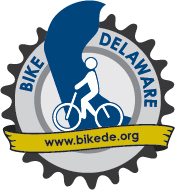“Resilience” is the capacity of a system to recover from perturbation, disturbance, stress or catastrophe.
“Resilience” is different from strength. A bodybuilder may be strong. But if he is vulnerable to being laid low by a snapped ligament or a compromised immune system, he is not “resilient”.
Delaware’s transportation system is like a body builder. For the last 80 years, we have spent billions and billions of dollars bulking up on our highways and roads, which now strangle our communities in impassable rivers of asphalt and hurtling steel. We have made it unsafe and impractical for the overwhelming majority of Delawareans to get where they need to go on a daily basis without owning a personal motor vehicle.
On a macro level, what happens to this bulked-up system if fuel prices rise catastrophically? Delaware has no control over the price of motor vehicle fuel. How could we respond quickly if a large-scale war in the Middle East, for example, were to suddenly interrupt petroleum supplies on the world market and send the price of fuel skyrocketing? The answer is: we couldn’t.
Our system is also brittle without any global disruption of the oil market. A rise in unemployment can be (and is) equally catastrophic. With the requirement of personal vehicle ownership making transportation the second largest household expense (still smaller than housing but larger than health care), the loss of a job often throws a family into the impossible position of choosing between the cost of ownership and maintenance of one or more motor vehicles and other even more important needs, including medical care and education.
 We need to change this, and we can. How? By joining with other citizen cyclists, you are supporting an organized, unified and powerful voice for bicycling. We have shown how powerful – how irresistible, in fact – we are when we are unified, organized and focused. If you want more of that – and want a resilient, multi-modal transportation system in Delaware – please help by becoming a member of Bike Delaware, today.
We need to change this, and we can. How? By joining with other citizen cyclists, you are supporting an organized, unified and powerful voice for bicycling. We have shown how powerful – how irresistible, in fact – we are when we are unified, organized and focused. If you want more of that – and want a resilient, multi-modal transportation system in Delaware – please help by becoming a member of Bike Delaware, today.

